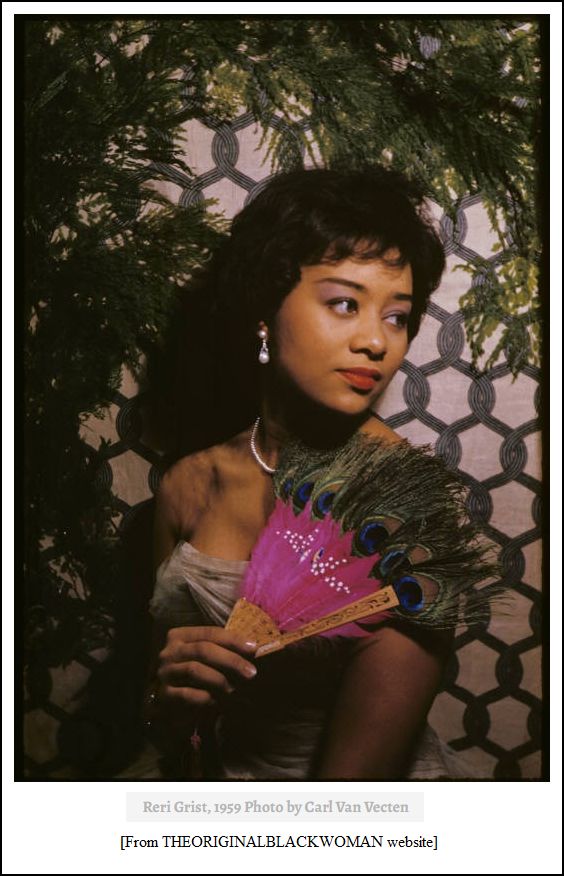

| Reri Grist is an internationally acclaimed
lyric and coloratura soprano noted for her “silvery tone, flawless technique
and stupendous acting.” Beginning her singing career as Consuelo in Leonard
Bernstein’s musical “West Side Story” in 1957, she introduced the song
“Somewhere” to the public. After that performance she flowed gradually
into a thirty-year career in opera, singing countless roles in opera houses
across Europe and America. She also concertized and has passed on her insights
through teaching voice in several countries. Born in New York on February 29, 1932, to West Indies immigrant parents who encouraged her talent and self-discipline, Grist acted as a young teen in several musicals. She attended the High School of Music and Art and received a degree in music from Queens College, New York in 1954. Singing with Bernstein’s New York Philharmonic, she gained recognition that led to her official operatic debut at the Santa Fe Opera in 1959, as Adele in Die Fledermaus. Igor Stravinsky met her there and invited her to perform in his Le Rossignol in 1963. [Recording conducted by the composer is shown below.] During a sightseeing trip to Europe in 1960, Grist auditioned for the Opernahaus Köln in Germany, and was immediately offered her European debut singing the Queen of the Night in Mozart’s Die Zauberflöte. She then became the first African American woman to become a permanent member of the Zurich Opera, 1960-1966 in Switzerland. This led to debuts at the Royal Opera House, Covent Garden, and Glyndebourne Festival Opera, in Great Britain, and at the Vienna State Opera in Austria where she performed through twenty-five consecutive seasons. In 1963 she first appeared with the San Francisco Opera, and continued through twelve seasons with that company. Grist debuted at the Metropolitan in 1966, singing there throughout twelve years. Her singing career has encompassed major soprano roles in the opera repertoire. Through the years Grist has also performed concert works by classical and contemporary composers with major orchestras and conductors. In 1991 Grist ended her operatic career at De Nederlanse Oper Amsterdam in the Netherlands in the one-woman tour de force Neither by Morton Feldman/Samuel Beckett. In 2007 she joined the original cast in a 50th anniversary celebration of “West Side Story,” singing “Somewhere,” the song that showcased her early beginnings in the musical world. Her awards include a Legacy Award from the American Opera Association, in 2001, a Lifetime Achievement Award from the Licia Albenese Foundation, 2003, and awards from Queens College. As Professor of Voice, Grist taught at the School of Music, Indiana University, Bloomington, Indiana and in Munich. She has been on numerous international juries and her Master Classes have been held in Santa Fe, New York, San Francisco, Zurich, and Madrid, Spain. Grist has lived for many years in Hamburg, Germany. She is married to Dr. Ulf Thomson, artistic administrator and general manager of symphony orchestras in Hamburg and Berlin. The couple has one daughter. == Text by Marianne Hanson, from the Blackpast
website (January 23, 2013)
== Photo of recording is from another source * * *
* *
Reri Grist was born on February 29 in 1932. She is a Black classical vocalist and educator. From in New York City, she grew up in the East River Housing Projects on the East River Drive in Spanish Harlem. It was a wonderful time living in this predominantly Italian, Puerto Rican, and Polish and African American neighborhood. She attended the high school of Music and Art and graduated with a Bachelor of Arts in Music from Queens College, New York City. In early childhood she was given dance and voice lessons and performed in concerts as vocal soloist singing works of Gounod, Schubert, Grieg and Mozart. Beginning in her early teens in 1946, she appeared on Broadway in small roles and in musicals along with Helen Hayes, Ossie Davis, Ruby Dee, Eartha Kitt and Lawrence Tibbett while attending voice lessons with Claire Gelda who discovered her unusual potential. Grist performed her first staged, operatic role in 1956 as Cindy
Lou (Micaëla) in "Carmen Jones", Oscar Hammerstein II’s adaptation
of Bizet’s "Carmen". In the original production of Leonard Bernstein’s
“West Side Story” in 1957, she played Consuelo, one of the Shark girls,
and introduced the song ‘Somewhere’ to the public. A major breakthrough
in classical music came shortly thereafter in 1960 when Bernstein engaged
her to sing the soprano part in Gustav Mahler’s Symphony No. 4 in concert
with the New York Philharmonic [recording shown below] coupled with
Bernstein’s prized Young People’s Concerts.
Reri Grist debuted at the Metropolitan Opera on February 25, 1966 as Rosina in Rossini’s "Il Barbiere di Siviglia". Other roles, which she sang there throughout twelve years, included Gilda in "Rigoletto", Norina in "Don Pasquale", Olympia in "Les Contes d’Hoffmann", Sophie in "Der Rosenkavalier", Adina, Zerbinetta and Oscar. There followed an "Ariadne auf Naxos" in italian at Milano’s Piccola Scala with Hermann Scherchen conducting. Several years later she sang Despina in "Così Fan Tutte" with Karl Böhm at La Scala. During a long time association, 1965 - 1983, with the Bayerische Staatsoper, she performed in several notable productions by Günther Rennert and Wolfgang Sawallisch including Richard Strauss’ "Die Schweigsame Frau" in which she sang Aminta. In 1976 she was honored by the state of Bavaria with the title of 'Bayerische Kammersängerin'. Grist ended her operatic career in 1991 at De Nederlanse Oper Amsterdam in the one-woman tour de force "Neither" by Morton Feldman/Samuel Beckett directed by Pierre Audi. She executed the one hour long, unusually exacting, and intricate vocal demands of Morton Feldman’s music coupled with the hermetic text of Samuel Beckett with a high degree of artistry that the audience and musicians rewarded with a standing ovation. She toured in song recitals in the USA, Canada and Austria with classical, romantic and contemporary repertoire partnered with the accompanists Irwin Gage, Phillip Moll, Warren Wilson, Heinz Medjimorec and Kenneth Broadway. As Professor of Voice Grist has taught at the School of Music Bloomington, Indiana and at the Hochschule für Musik und Theater München. She has been a member of various international juries and has given Master Classes at Young Artists Programs including those of the Santa Fe Opera Apprentice Program, Metropolitan Opera Lindemann Young Artist Development Program, San Francisco Opera Merola Program, Zürich International Opera Studio, Escuela Superior de Música Reina Sofia Madrid, and the Steans Institute Ravinia, Illinois. Other recognitions of the soprano’s accomplishments include a Legacy Award of the American Opera Association in 2001, a Lifetime Achievement Award of the Licia Albenese Foundation in 2003 and two awards from her alma mater Queens College, NYC. Along with her schedule of performance engagements, Grist and her family spent vacations throughout many years sailing in the Baltic Sea, cross country skiing in Switzerland and Austria and hiking in parts of central Europe. She is married to Dr. Ulf Thomson, 1982-87 Artistic Administrator (Redakteur) of the Norddeutsche Rundfunk Sinfoniorchester Hamburg, 1987- 90 Intendant of the Radio-Symphonie-Orchester Berlin. Among her other hobbies Reri Grist includes gardening, cross stitch embroidery, collecting and cooking unusual recipes from various cultures. == Text is from the African American Registry
website
== Photo of recording is (again) from another source == Names which are links in this box and below refer to my interviews elsewhere on my website. BD |
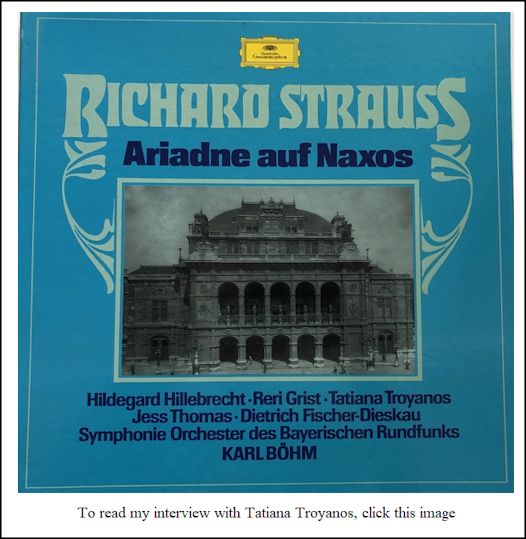
|
Ferenc Fricsay (1914-1963)
At the same time he was developing an international career, conducting the Berlin Philharmonic Orchestra for the first time in 1948, returning to the Salzburg Festival to conduct Frank Martin’s Le Vin herbé in 1948 and Carl Orff’s Antigone in 1949, and conducting in England, Holland, Israel and South America. In 1950 he conducted the Glyndebourne Festival Opera’s production of Mozart’s Le nozze di Figaro at the Edinburgh Festival. In 1956 he became chief conductor of the Bavarian State Opera, where he remained for two seasons before returning to his old post with the Berlin Radio Symphony Orchestra in 1959; he also acted as a musical adviser to the Deutsche Oper, and inaugurated the company’s new opera house in 1961, leading Don Giovanni. Fricsay was unusual in that he insisted on and obtained great precision in his performances, yet combined this with considerable emotional force. In this respect his performances were quite different from those of Wilhelm Furtwängler, the other great Berlin conductor of the period when Fricsay was establishing his international conducting and recording career. These characteristics made him an ideal recording conductor, giving his recordings a power and freshness denied to many rival versions. He encouraged orchestral musicians to listen to each other, and to play as though in chamber music: consequently his performances possessed excellent internal balance, which also was a great advantage when it came to making records. Fricsay’s repertoire was extremely wide: he was equally at home in the opera house pit as on the concert hall podium. His accounts of operas by Mozart have well stood the test of time with their bustling vivacity. Fricsay’s musicianship was so keen and wide-ranging that anything to which he turned his hand was delivered with real understanding and style. To quote a highly distinguished musician, Yehudi Menuhin, ‘Fricsay was one of the world’s greatest conductors, certainly no conductor had greater talent.’ == Text from the Naxos website
== Photo is (yet again) from another source |
|
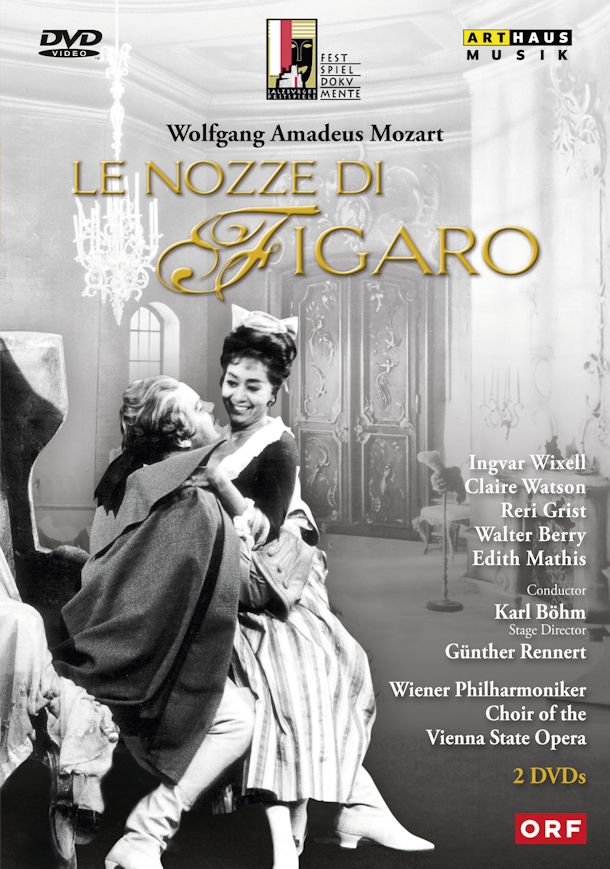 BD: How do you get a balance between being so precise
and being artistic?
BD: How do you get a balance between being so precise
and being artistic?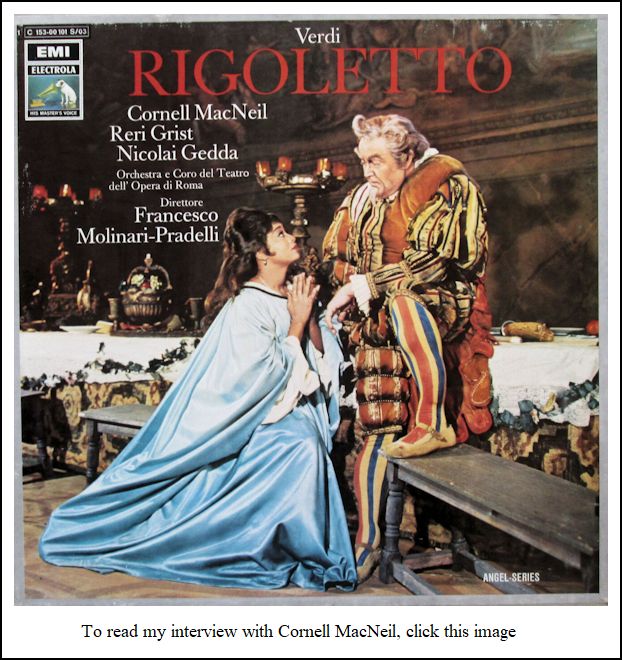 BD: Should the composers take a few voice lessons?
BD: Should the composers take a few voice lessons?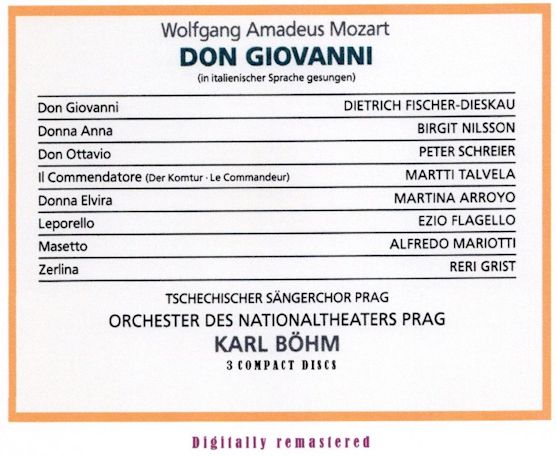
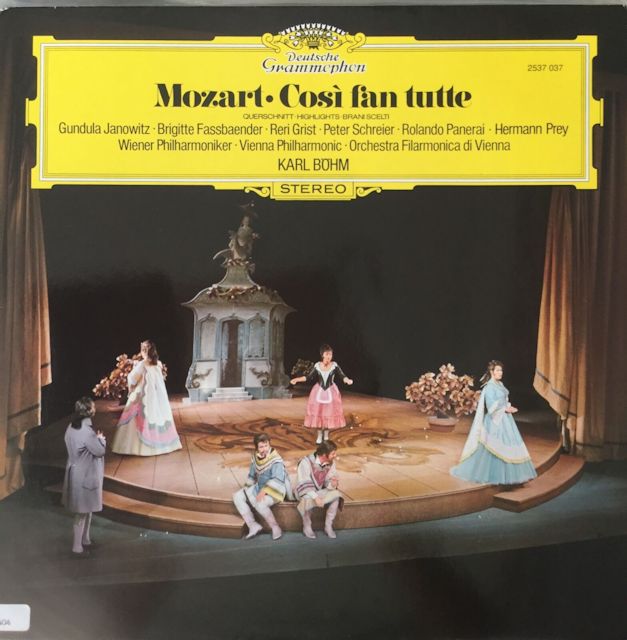
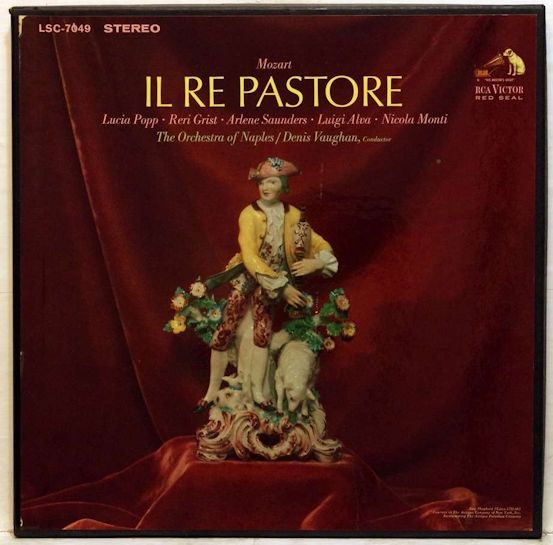
 BD: How difficult is it to say ‘no’?
BD: How difficult is it to say ‘no’?
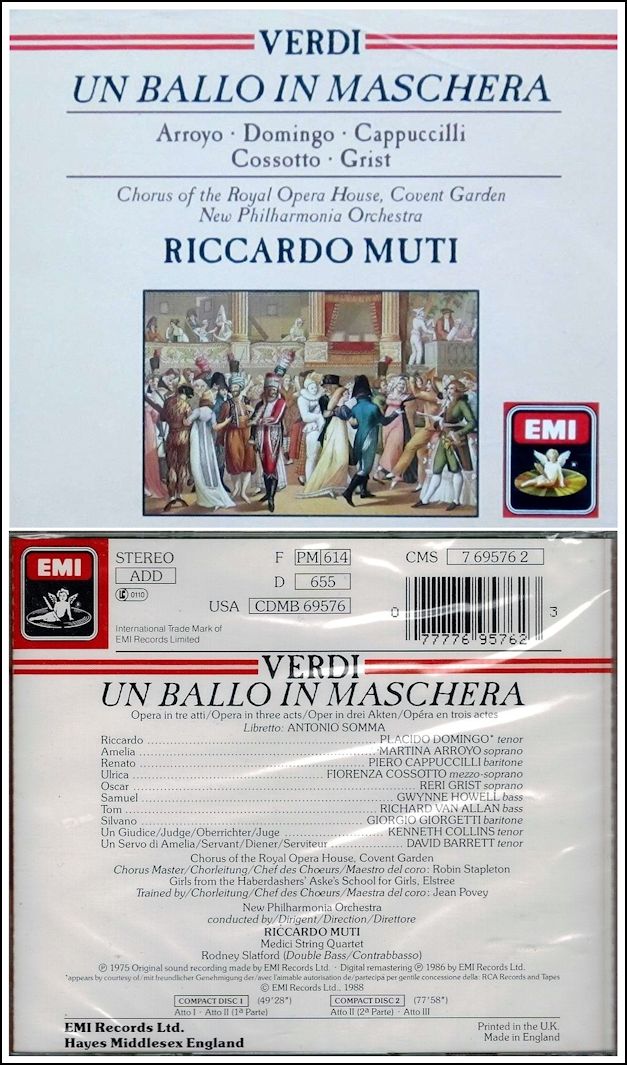 BD: There’s a special place in your heart for her.
BD: There’s a special place in your heart for her.© 1992 Bruce Duffie
This conversation was recorded at the Ravinia Festival in Highland Park, Illinois, in August of 1992. Portions were broadcast on WNIB in 1994 and 1997. This transcription was made in 2021, and posted on this website at that time. My thanks to British soprano Una Barry for her help in preparing this website presentation.
To see a full list (with links) of interviews which have been transcribed and posted on this website, click here. To read my thoughts on editing these interviews for print, as well as a few other interesting observations, click here.
Award - winning broadcaster Bruce Duffie was with WNIB, Classical 97 in Chicago from 1975 until its final moment as a classical station in February of 2001. His interviews have also appeared in various magazines and journals since 1980, and he now continues his broadcast series on WNUR-FM, as well as on Contemporary Classical Internet Radio.
You are invited to visit his website for more information about his work, including selected transcripts of other interviews, plus a full list of his guests. He would also like to call your attention to the photos and information about his grandfather, who was a pioneer in the automotive field more than a century ago. You may also send him E-Mail with comments, questions and suggestions.